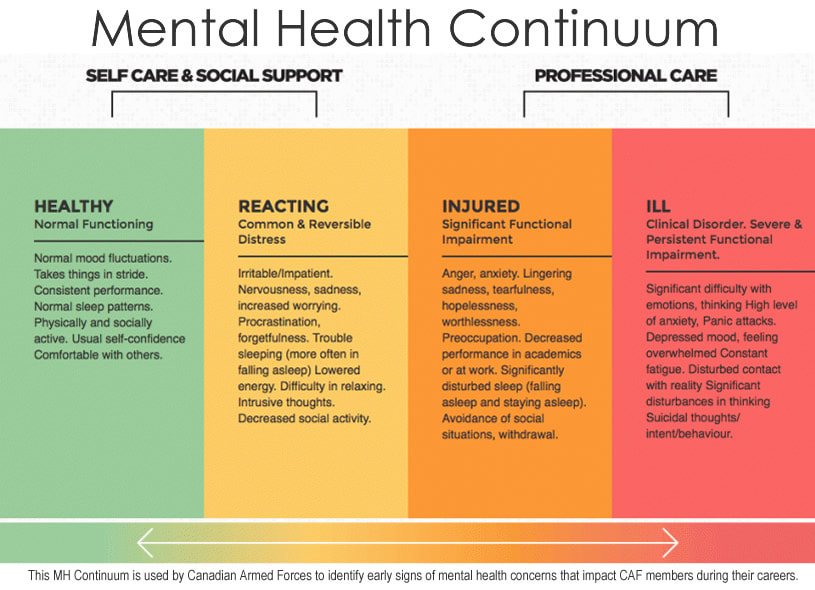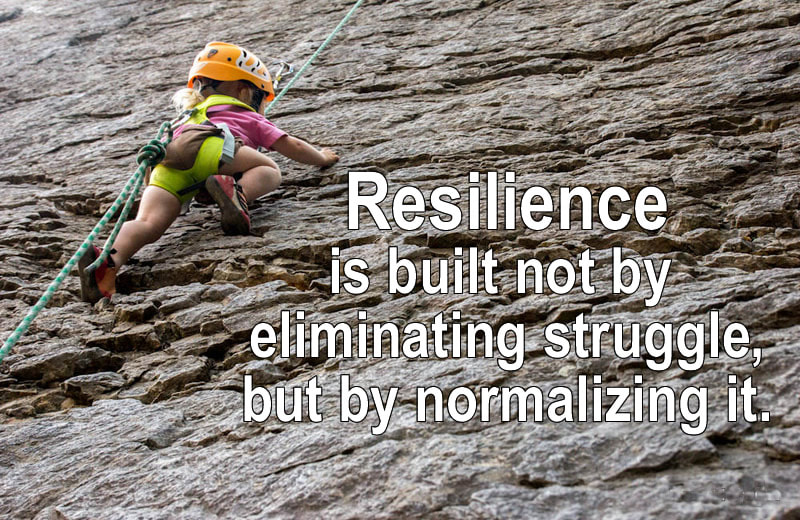It happened again... I was at a meeting where self-care was offered as the solution to educator mental health. The suggestion is usually from a well meaning professional, coming from a place of concern. But the suggestion lacks an understanding of where so many educators are on the continuum of mental health.
What's a mental health continuum? It's a scale that recognizes a spectrum of mental health concerns that impact a person's life or career. Take this Mental Health Continuum used by the Canadian Armed Forces, it can easily be applied to the education professional.
What's a mental health continuum? It's a scale that recognizes a spectrum of mental health concerns that impact a person's life or career. Take this Mental Health Continuum used by the Canadian Armed Forces, it can easily be applied to the education professional.
How should this continuum effect our response? It might be easier to understand if you relate it to a health continuum-- your health can range from feeling good, having a cold, getting pneumonia, to being hospitalized with respiratory failure. You would use self-care to maintain healthy function and keep the cold in check, but you would likely get professional help in treating pneumonia. We see it as irresponsible to say "get plenty of exercise and drink more fluids" to someone with pneumonia or respiratory failure.
Offering self-care advise for mental health concerns, without first looking at where our professionals are on the continuum, is not a responsible response to the problem. Many educators have passed from "healthy" or "reacting" to "injured," some "ill." 42% say they think about staying home because they're too tired; 60% lack the enthusiasm they once had for their job; 25 to 40% leave the profession in the first 5 years, mainly due to job dissatisfaction. These are signs of a mental health concern that needs more than a self care fix.
Until we recognize our problems need more than self-care solutions, we will continue to live with the effects of untreated mental health concerns among our educators: high absenteeism, difficulties in preforming in the classroom, lower student performance, and educators leaving the profession.
Offering self-care advise for mental health concerns, without first looking at where our professionals are on the continuum, is not a responsible response to the problem. Many educators have passed from "healthy" or "reacting" to "injured," some "ill." 42% say they think about staying home because they're too tired; 60% lack the enthusiasm they once had for their job; 25 to 40% leave the profession in the first 5 years, mainly due to job dissatisfaction. These are signs of a mental health concern that needs more than a self care fix.
Until we recognize our problems need more than self-care solutions, we will continue to live with the effects of untreated mental health concerns among our educators: high absenteeism, difficulties in preforming in the classroom, lower student performance, and educators leaving the profession.




 RSS Feed
RSS Feed